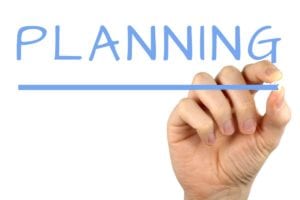Are You Planning To Fail?
Take five opportunities that you are currently working, and quickly answer this question for each one, “Why are you engaging this prospect at this time?”
Now take your next five appointments and answer this question, “What is my objective for this meeting?”
Sales planning is strongly correlated with sales success. For example, an international study of business-to-business sales teams found that the most effective sales groups (effectiveness being measured in terms of sales volume, market share, profitability, and customer satisfaction) were better at sales planning in all areas including: planning each sales call, planning sales strategies for each customer, planning coverage of assigned territory and customer responsibility, and planning daily activities.
Neil Rackham says it this way, “A consistent finding about successful salespeople is that they put effort into planning. Good selling depends on good planning more than any other single factor.”
Unfortunately, research also shows that despite the correlation between planning and sales success, most sales people do not set realistic goals for themselves for each sales encounter.
Do You Have Clarity?
The underlying principle behind all planning and goal setting is clarity. By being clear about what we really want from each opportunity and on each individual sales encounter, we set forces in motion (both conscious and unconscious) that move us towards the achievement of our goals. It is important then, that we seek clarity about what is wanted in each opportunity and each sales encounter. I distinguish between opportunities and sales encounters because when asked what their goal is for a given sales encounter, the vast majority of salespeople reply with something equivalent to “close the sale” or “get the order.”
Unfortunately, in all but the simplest transactions the typical sales cycle may involve from four to ten sales encounters. For very complex sales it can be even more. So the idea that you are going to close the sale (as lofty as that goal may be) on any of the earliest encounters is completely unrealistic. Closing the sale is really only a realistic accomplishment on the last call of the cycle.
It is important then that we distinguish between our overall sales objective and our individual call objectives on any given opportunity. Doing so gives us both the big picture of what we want to accomplish with our sale (the overall sales objective) and what we wish to accomplish on this particular call (the call objective).
Setting appropriate sales objectives for each opportunity as well as appropriate call objectives for each individual encounter will lead to an unbroken chain of successful advances that will ultimately lead to closing the sale and getting the order.
Closing Tip: Set separate objectives for each sales opportunity as well as for each sales encounter.


